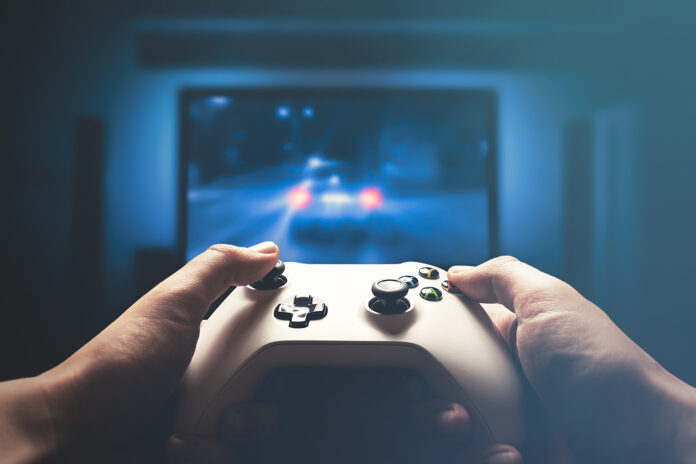The judgment of the German Federal Court of Justice in Sony v. Datel (BGH, 31 July 2025 – I ZR 157/21, Action Replay II) (the “Judgment”) brings clarity to a previously controversial question: When does the manipulation of RAM data constitute a copyright-relevant adaptation of software? The court ruled that the distribution of software that enables users to manipulate the program flow of a computer game without altering the program data, object, or source code of the game software used on the game console does not infringe the game manufacturer’s copyright in the game software.
Technical background: cheat tools and RAM manipulation
As the exclusive licensee for the whole of Europe, the plaintiff distributes game consoles and computer games designed for them. The defendant develops and distributes so-called “cheat tools”, including “Action Replay PSP” and “Tilt FX”, which alter the behavior of computer games on the game console “PlayStation Portable”. In particular, these tools interfere with the Random Access Memory (RAM), the temporary working memory of a computer or gaming console, where data is stored and accessed during program execution, in order to manipulate game scores or modify game characters, for example. The plaintiff claimed that this violated its rights to the game software and sought an injunction.
Legal basis: § 69c No. 2 UrhG and the EU Software Directive
The legal assessment focuses on § 69c No. 2 of the German Copyright Act (Urhebergesetz – UrhG), which regulates the processing and modification of computer programs. The provision is based on art. 4(1) (b) of Directive 2009/24/EC (EU Software Directive) and aims to safeguard the rights holder from unauthorized alterations to the structure or functionality of a program.
The key legal question was whether the manipulation of RAM data by cheat tools constitutes an “adaptation” or “modification” of the program within the meaning of copyright law. The answer to this question determines whether such interventions fall within the scope of exclusive rights granted to the software author under both national and EU law.
The judgment: RAM manipulation is not processing
The BGH clarified that the targeted manipulation of data in RAM during program execution – such as activating cheats – is not to be considered an adaptation of the program under copyright law. The decisive criterion is whether the program code itself is altered. Merely modifying data in the working memory does not affect the copyright-protected code.
The judgment aligns with the interpretation of the Court of Justice of the European Union (CJEU), which emphasized in its preliminary judgment of 17 October 2024 (Case C-159/23) that the scope of protection of the EU Software Directive does not extend to dynamic data in working memory, provided that such manipulation does not result in the reproduction or recreation of the program.
Implications for the gaming sector
The BGH’s decision has significant implications for both providers of cheat tools and the modding community, that is, the users who modify games through their self-created extensions. While mods are often viewed as creative enhancements, they may qualify as adaptations under copyright law depending on the extent and nature of the intervention. The judgment helps delineate the boundary between lawful interoperability and unlawful manipulation.
For manufacturers, the judgment does not mean a general strengthening of their control rights over RAM manipulations. Instead, they must now differentiate between actions that alter the actual program code and those that merely affect transient data in working memory, which do not fall under the scope of copyright protection.
Alignment with EU jurisprudence on software protection
The decision of the German court reflects a broader European trend towards a more nuanced delineation of the scope of copyright protection for software. The CJEU clarified in its judgment mentioned above that the protection of computer programs applies exclusively to their forms of expression, namely, their source and object code. Functional manipulations of RAM data during program execution, insofar as they do not lead to the reproduction or recreation of the program, fall outside the Directive’s protective scope.
This interpretation reinforces the fundamental distinction between protected expressions (code) and unprotected elements such as ideas, principles, and dynamic data processed by a program. It aligns with the directive’s dual objectives: protecting authors from unauthorized copying while enabling interoperability and independent development.
Nevertheless, legal uncertainty persists regarding the extent of protection when users modify programs to introduce new functionalities or improve existing ones. Striking the right balance between copyright protection and technological innovation remains a challenge – particularly in the gaming sector, where user expectations and developer interests often collide. While the judgment underscores that not every technical intervention constitutes a copyright-relevant adaptation, it provides valuable guidance for the legal assessment of cheat software and user-generated modifications.
Final observations
The German Federal Court of Justice has provided a pivotal clarification regarding the copyright assessment of cheat software. The judgment establishes a clear limitation on the scope of software copyright protection in relation to manipulations of RAM data. It reaffirms the principle that only changes to the protected program code may constitute an adaptation within the meaning of § 69c UrhG. In contrast, changes to transient data remain outside the scope of protection. This distinction contributes to greater legal clarity in assessing technical interventions in software, particularly within the gaming industry, where the boundaries between user creativity and developer rights are frequently contested.


